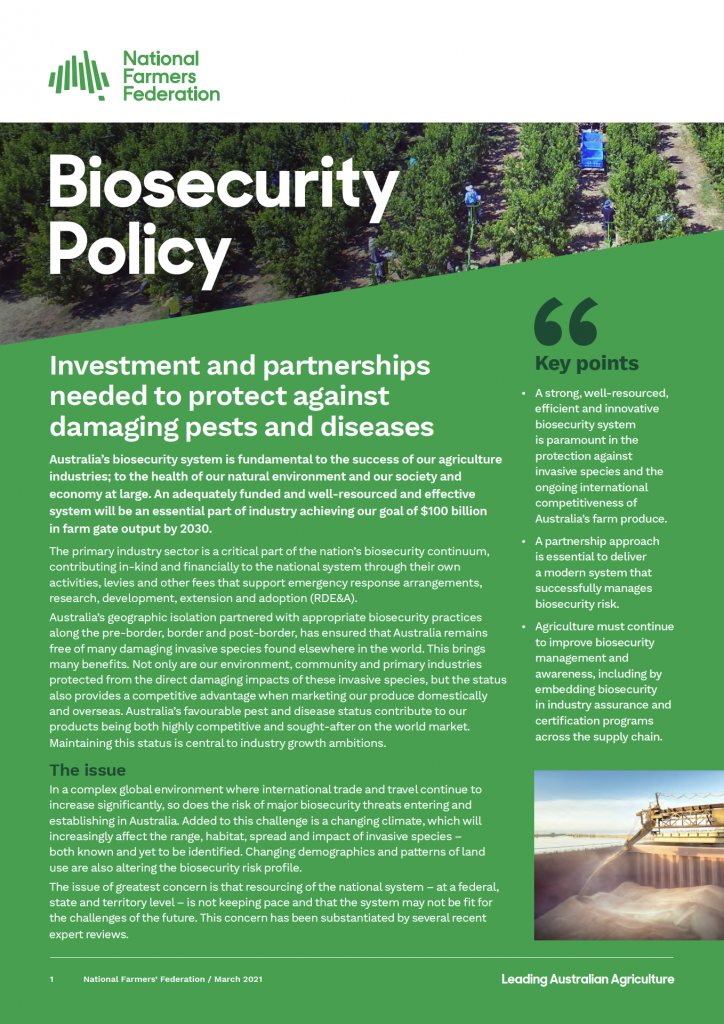Australia’s biosecurity system is fundamental to the success of our agriculture industries; to the health of our natural environment and our society and economy at large.
An adequately funded and well-resourced and effective system will be an essential part of industry achieving our goal of $100 billion in farm gate output by 2030.
The primary industry sector is a critical part of the nation’s biosecurity continuum, contributing in-kind and financially to the national system through their own activities, levies and other fees that support emergency response arrangements, research, development, extension and adoption (RDE&A).
Australia’s geographic isolation partnered with appropriate biosecurity practices along the pre-border, border and post-border, has ensured that Australia remains free of many damaging invasive species found elsewhere in the world.
This brings many benefits. Not only are our environment, community and primary industries protected from the direct damaging impacts of these invasive species, but the status also provides a competitive advantage when marketing our produce domestically and overseas.
Australia’s favourable pest and disease status contribute to our products being both highly competitive and sought-after on the world market. Maintaining this status is central to industry growth ambitions.
To view the NFF’s policy on biosecurity and industry priorities for action: click here.
For a full list of recent submissions relating to biosecurity: click here.
To read more about the NFF’s Biosecurity Policy, click the image below:
Decade of Biosecurity Initiative
The NFF is a project partner of the Decade of Biosecurity which is a program being developed under the banner of Biosecurity 2030 to place the spotlight on the importance of biosecurity for all Australians. The Decade of Biosecurity seeks to put industries, businesses, research and community members at the centre of the biosecurity system to pave the way for transformational change over the next decade; building a stronger biosecurity system and generating a ‘biosecurity mass movement’.
Find out more here.






Add comment